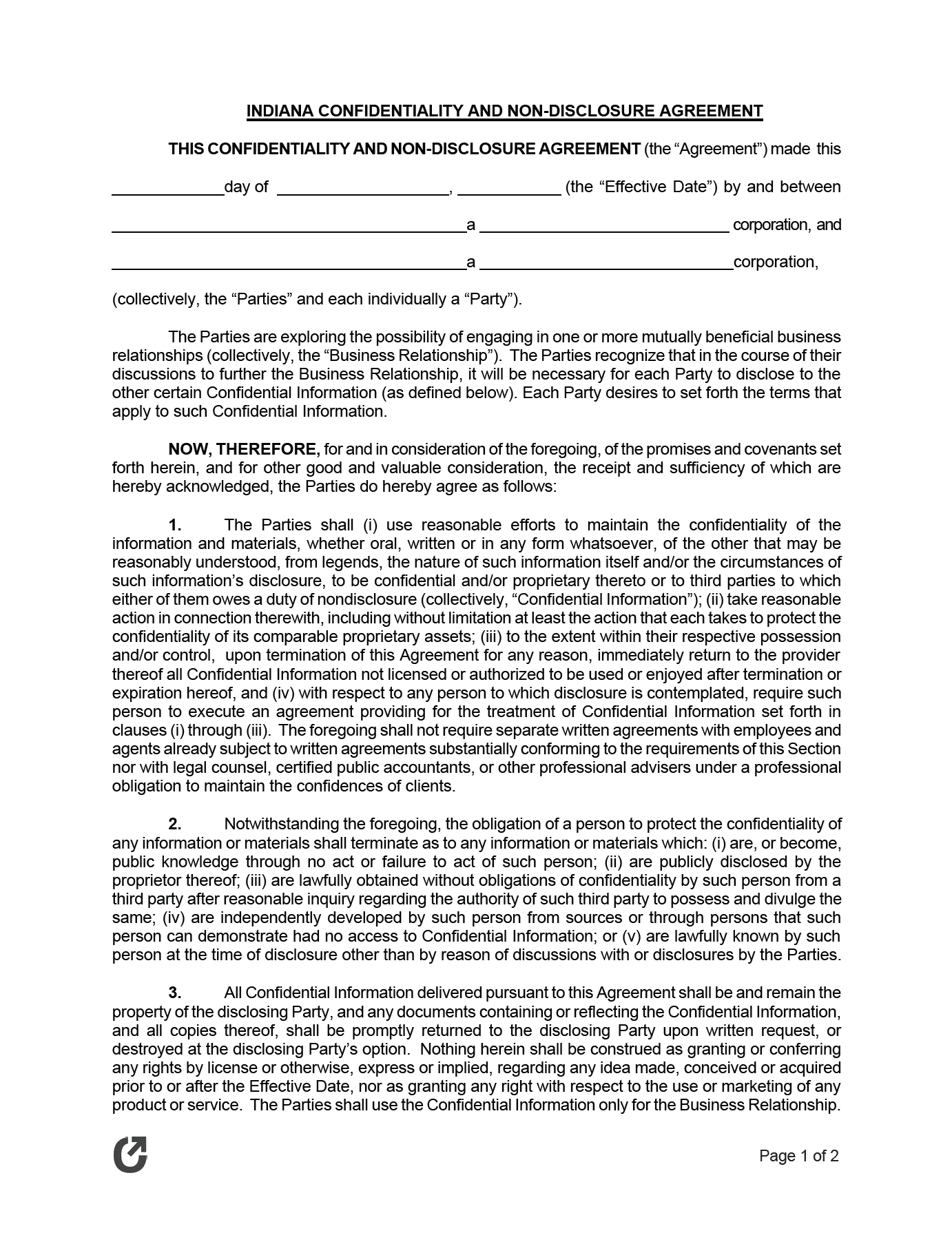Indiana Non-Disclosure Agreement Template
An Indiana non-disclosure agreement (NDA) is a legal document that binds an employee or other entity from wrongfully sharing a company’s private information. The form can be used as either a bilateral or unilateral agreement, meaning it can be used in situations where just one (1) party is sharing information (unilateral) as well as in situations with both parties sharing information to each other (bilateral). The form is commonly used in situations such as:
- Potential business mergers,
- Doctor-patient confidentiality,
- Recipes and processes, and
- Protecting newly developed products.
If a party discloses secrets with any unauthorized people, the NDA grants the disclosing party the legal right to fight in court for compensation for any damages caused by the leak.
Laws
- Chapter: §§ 24-2-3-1 to 24-2-3-8
- Definitions: § 24-2-3-2
- Statute of Limitations (§ 24-2-3-7): Action for misappropriation needs to be taken within three (3) years after first discovering an NDA was breached.
Benefits of an NDA
There are many benefits to making an NDA. They range from providing clarity to both parties about the terms of the disclosure to enhancing compliance of the established rules. Below are five (5) benefits of making an NDA:
| Benefit #1 | Both parties are clear about what information may or may not be disclosed. |
| Benefit #2 | A standard NDA can be easily tailored to suit the particular needs of the parties involved. |
| Benefit #3 | The Disclosing Party has the peace of mind that there are legal measures in place to help enhance compliance. |
| Benefit #4 | The NDA provides a means of informing the Receiving Party of the terms of the disclosure so that they are aware of their respective rights and responsibilities. |
| Benefit #5 | If the Receiving Party breaches the NDA, the Disclosing party may pursue damages as per the terms of the agreement. |
